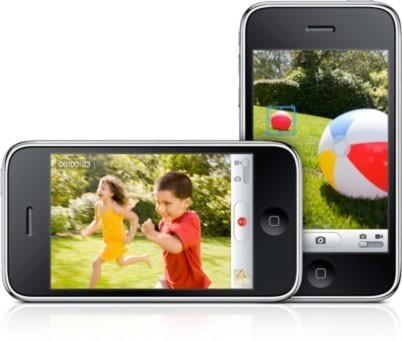
When America entered the conflict in Vietnam, so, too, did its news teams. For the first time in our country’s history the true nature of war was being shown to our people. This forever changed the way we viewed war, as well as the power of the camera.
Technology (moving at such a steady clip as it does) has reached massive benchmarks. Perhaps leading this charge into centuries unknown is a surprising little tool we’ve all grown accustomed to carrying.
The capability to take pictures from our cell phones, no matter where we might be at any given time, is changing the landscape of photography in ways we might not yet realize. In fact, it’s very possible we do realize this subconsciously, but take entirely for granted. One need only frequent sites like Tumblr or Facebook to see this quiet revolution in action. With apps like Instagram, Vignette, and CamWow (just to name very few), amateur photographers are able to capture virtually every moment in time — however big or small.
iPhones (and similar smart phones) have become such an outlet for photographers that third party companies have even started producing professional lenses that clip on to these devices. This opens a world of possibilities for any one looking to capture a moment in time, but who can’t afford high-end cameras. Wide angle lenses, zoom lenses — you name it — are empowering a new generation of visual beings.
This technology is not only useful for recording our personal histories; the cumulative history of mankind is also being casually cataloged as well.
 If you pay attention to current events, odds are you have seen this photo. It was taken by Stephanie Gordon (an amateur photographer from New Jersey) via her iPhone while on a flight to Palm Beach. For the uninformed, Stephanie captured one of NASA’s final shuttles, the Endeavor, launching into outer space while casually observing her heavenly surroundings.
If you pay attention to current events, odds are you have seen this photo. It was taken by Stephanie Gordon (an amateur photographer from New Jersey) via her iPhone while on a flight to Palm Beach. For the uninformed, Stephanie captured one of NASA’s final shuttles, the Endeavor, launching into outer space while casually observing her heavenly surroundings.
Mere hours after tweeting the picture, NASA re-tweeted it and the picture went viral. Given that this may be the only photo of this historic occasion from this vantage point, it is entirely possible it will be the reference photo for all of history to come. Can you imagine what other monumental moments could be recorded, tweeted, and re-tweeted moving forward?
Consider the riots in Egypt. Footage was captured on cell phones and shared on sites like YouTube, and before news crews could arrive the whole world witnessed the act of a country rebelling against tyranny. Those who had been trampled under an oppressive rule became empowered, and fellow travelers were born in countries the world over.
No matter who we are, no matter our position or our goals in life, all of us can become custodians of human history. All of this because of a common device we all carry in our pockets — never giving much thought as to how it could impact civilization — good for making calls and flinging Angry Birds, as far as we knew.
~~~~
Jordan Siron is a freelance writer fascinated by technology, and is his own custodian of history.
